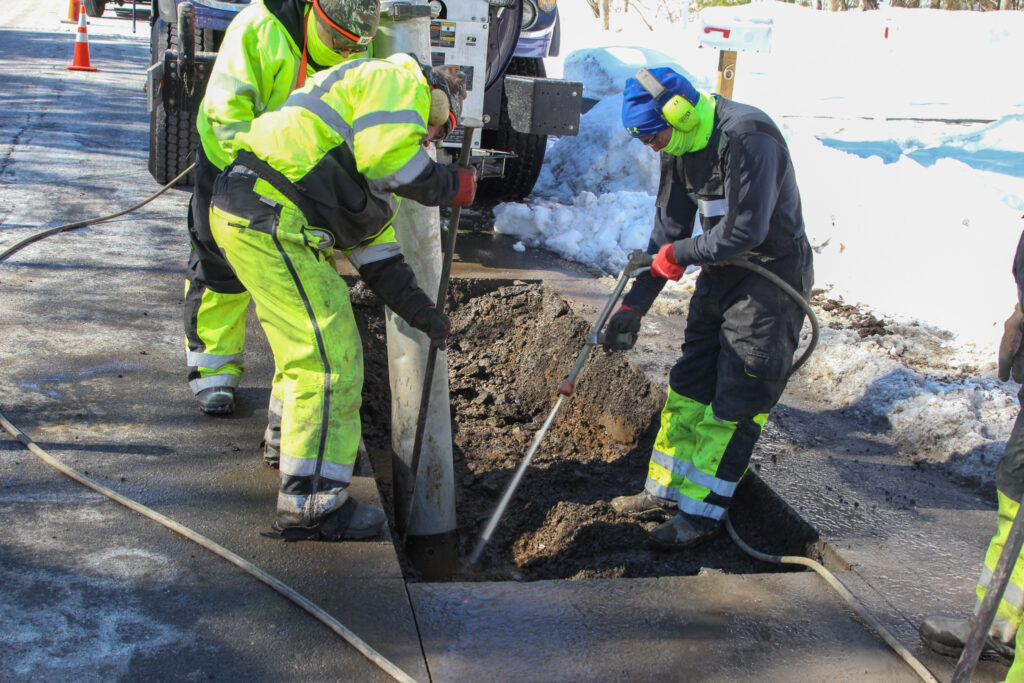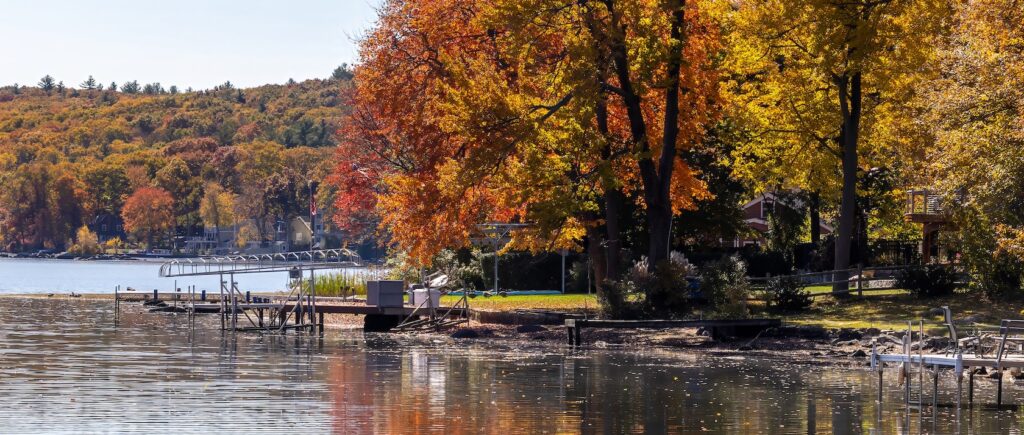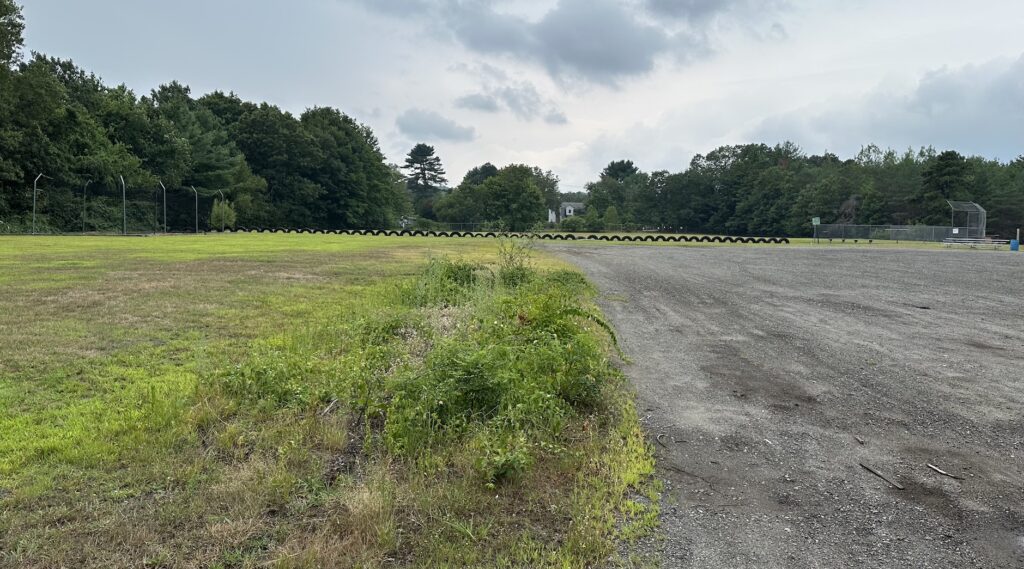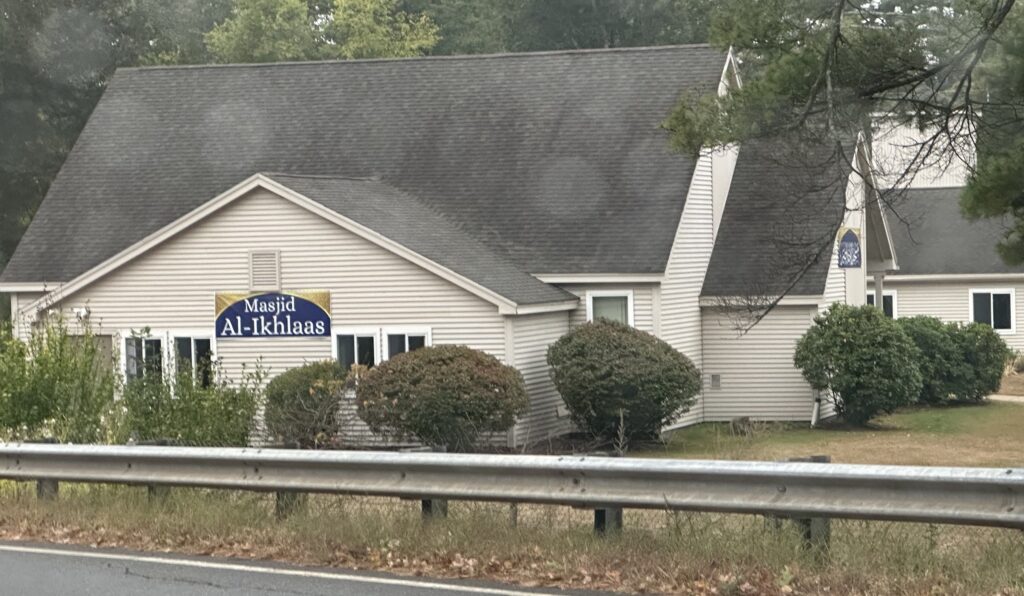The Conservation Commission, at its Tuesday night meeting, approved under the town bylaws a proposal from developer Lou Petrozzi, president of Wall Street Development Corp., to construct three single-family homes off Leonard Street.
Leonard Street is located just off the intersection of Grove and Pleasant Streets. It’s paved for a portion then becomes gravel. There also are isolated wetlands on much of the property where Petrozzi plans to build.
When introduced in 2018 the project was bigger, but the developer scaled it down and also focused on improving the water management plan. There are existing issues with water management in the area, affecting property on Maple Street Extension, which abuts the proposed development. In addition to widening and paving the portion of the gravel road that affects access to the proposed homes, the developer said he will grade the road so that water runs off into the wetlands.
“This has been going on two-plus years now,” Conservation Commission chair Jeff Barnes said before votes were taken on the road, driveways and individual house lots. “It’s gone through multiple iterations with the design. The overall scope of the project, the development, has been reduced. I’m comfortable based on [fellow commission members’] comments on the storm water, [town engineering consultant] BETA’s review, DPW’s endorsement of the current design.”
Support for the project was not unanimous.
“I understand my charge to be to protect wetlands in town,” commission member Ted Barker-Hook said before voting no on all three house lots. “I’m looking at protecting the wetlands, and it seems to me that this project doesn’t do that at all. The lots don’t do it, and essentially turning the wetlands into a retention basin that the applicant admits will change the flora of the wetlands makes it so I can’t see how I’m doing my job if I vote other than the way I’m going to.”
Resident Tom Terry, who owns an undeveloped (but cleared and maintained) parcel of land off Leonard Street, expressed concerns with the project’s impact on neighbors and requested the commission hold off on making a decision.
Barnes offered some clarification that the members were voting on the project as it pertains to the town bylaw and not the Wetlands Protection Act.
“The two wetlands systems that we’re looking at are isolated vegetated wetlands that are on the property, so those are not contemplated under the Wetlands Protection Act, but they are contemplated under our bylaw,” he said. “The wetland system on the abutting property which is on the south side is a wetland BVW [bordering vegetated wetlands] that’s contemplated both on the bylaw and the act.”
Paul McManus of the environmental consulting firm EcoTec, working on behalf of the developer, said he did not anticipate the changes to the wetlands to be problematic.
“In my opinion that does not represent a negative change,” he said. “I don’t believe that every change is a negative change, and in this case I don’t believe that what would result from this project would be a negative change.”
Commission member Melissa Recos noted that the commission typically would take a stronger stance in similar situations, but considering the improvements the developer made since the original plan she was optimistic the entire area would benefit.
“These being isolated wetlands, I think in a lot of cases the amount of building and disturbance in the buffers, things that we don’t necessarily typically — it is at our discretion, but we like to see more distance,” she said. “However, given this particular circumstance with these wetlands most likely being created from drainage and development in the area, the stormwater improvements, the [drain water management plans] that they’re putting in place along the existing gravel roadway will benefit the wetland. I think they are making some improvements there to the runoff from the drainage that currently goes to the wetlands. That isn’t necessarily caused by their development, but I think that is kind of a mitigation measure that’s improving the circumstances for that isolated wetlands.”
Added commission member Jim Ciriello: “I do think this is an improvement. It’s been an uncontrolled discharge for so long. I think that it is an improvement to the stormwater. Mr. Petrozzi has done everything we’ve asked. The engineering is sound. And it benefits not only the wetland, maybe making it better, but it also benefits the neighbors who are having issues because of the uncontrolled water.”





















0 Comments